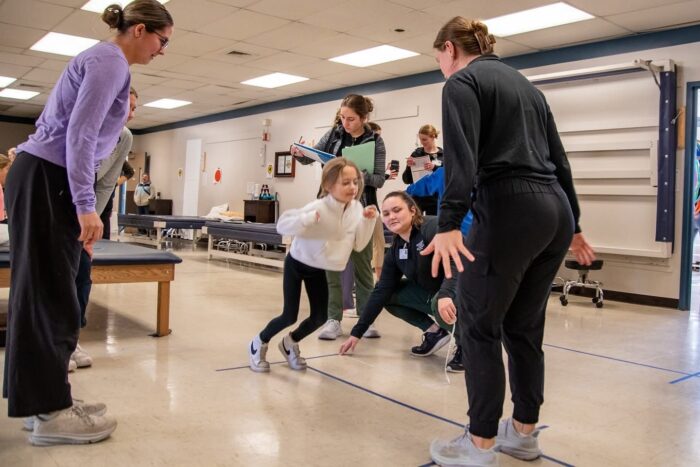
Dr. Joseph LaManna, assistant professor of biological sciences in the Klingler College of Arts and Sciences, is heading a grant awarded by the National Science Foundation worth approximately $800,000 to explore how native microorganisms adapt under the stress of shifting global climates.
LaManna’s research will explore how mutually beneficial microorganisms contribute, directly and indirectly, to the abundance, distribution, and diversity of tree species along varying degrees of stress by influencing density dependent growth and mortality among different plant species.
“As the global climate shifts, research into how populations and communities adapt to environmental change and stress has become increasingly critical,” LaManna said. “We lack a comprehensive understanding of how microbially mediated interactions may be amplified or weakened in the face of increased environmental stress. Our research will test multiple hypotheses regarding how fungal symbionts contribute to the direction and strength of feedback for dominant tree species in forests of the Pacific Northwest.”
The grant is an NSF Collaborative Research award, with LaManna partnering with Drs. Andrew Jones and Posy Busby, associate professors of botany and plant pathology at Oregon State University. The research will be conducted in the H.J. Andrews Experimental Forest near Blue River, Oregon, where LaManna and his lab have recently expanded long-term forest dynamics plots that have been continuously studied since the early 1970s.
This project will test the hypothesis that the net effect of fungi on plant performance is correlated with the level of external environmental stress it faces, with important implications for forest populations, ecosystems and diversity. To accomplish this, his team will plant trees on-site and manipulate above and belowground fungal mutualists. In a greenhouse, researchers will also manipulate trees, microbes, and soil nutrient and drought stress to directly test the hypothesis. The impacts of fungi on older tree mortality and growth will be assessed with forest health assessments in long-term forest dynamics plots.
“This is a major and well-deserved research opportunity for Dr. LaManna,” said Dr. Heidi Bostic, dean of the Klingler College of Arts and Sciences. “His research comes at a time of increasing urgency around the issue of global climate change. His research, both through the gained insights and the opportunities for the next generation of plant and fungal ecologists, are at the heart of Marquette’s mission of discovery and expanding educational opportunities. His work also responds to our obligation as a Catholic institution to pursue this kind of research and strive for a better future for people and the planet.”
This research project will also undertake a tiered mentoring approach for aspiring researchers in modern approaches to understanding tree and fungal population and community dynamics. Opportunities will be available for postdocs, K-12 teachers, graduate students and undergraduates, with a focus on communities underrepresented in STEM fields.


